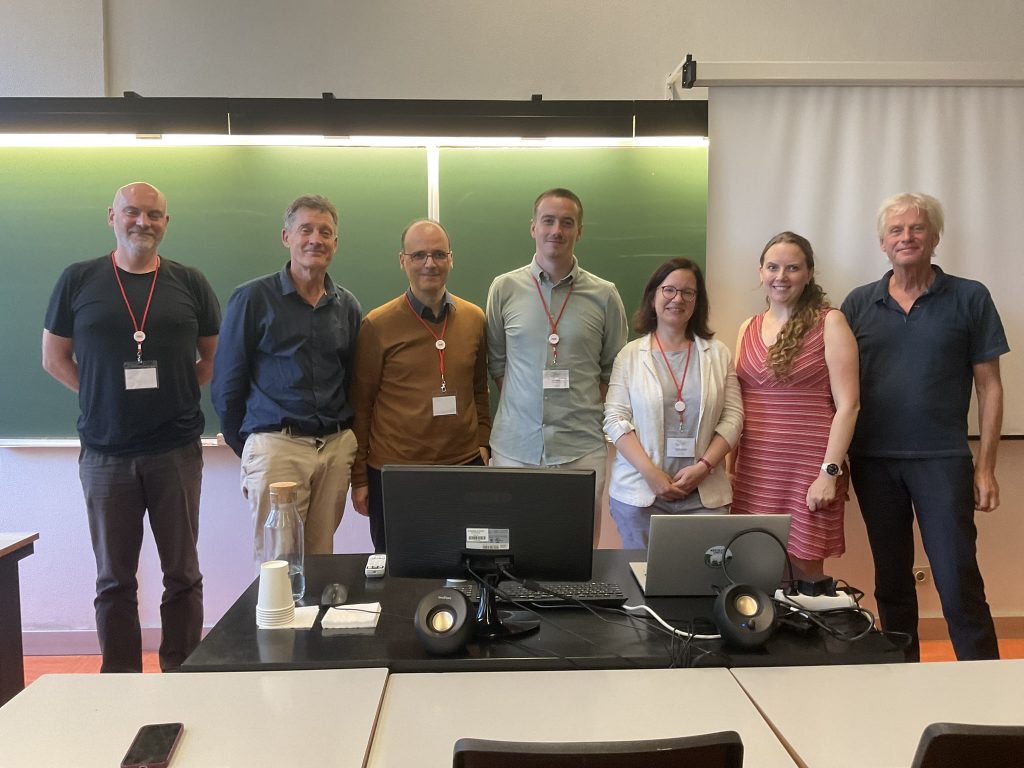RURALITIC representatives take part in International Rural History Conference
RURALITIC representatives from the University of Porto, Portugal, took part in Rural History 2025 – the seventh biennial conference of the European Rural History Organisation (EURHO), which ran from 9 to 12 September in Coimbra. The final day saw the team present RURALITIC’s work on the relevance of ethnographic films to the construction of perceptions of rural areas.
Bringing together some 400 researchers from 40 countries across Europe and beyond, with participants also following online, the conference took place in the Faculty of Economics of the University of Coimbra – Portugal’s oldest university.
The title of the panel featuring the RURALITIC representatives was ‘Framing the countryside: the role of moving images in shaping rural perceptions and identities’. The team’s participation formed part of the project’s activities on the conceptual definition of rural social spaces in Europe.
Documenting change
RURALITIC’s presentation was entitled ‘On The Compass: A Research Film and its contrasts: the recomposition of rurality in contemporary Portugal through documentary films’. The paper presented by the team discussed The Compass – a documentary about sociological research in a rural area of north-western Portugal.
Directed by Regina Guimarães and Saguenail and made in 2008, three decades after the studies it aimed to examine, The Compass saw a team of researchers, including some who had worked on the original project in the late 1970s, visit the area to reflect on the impact of filming on sociological research and document the tensions arising from social change.
Drawing on recurring themes in Portuguese ethnographic filmmaking, such as religious and popular festivals, song, agricultural labour and buildings, The Compass gives a detailed portrayal of the disputes that shape rural life. Furthermore, it showcases the researchers’ aims, the challenges they faced and their reflections on the issues addressed.
Produced by RURALITIC team members who worked on The Compass, the paper summarises the themes explored in the film and sets them alongside an analysis of other notable documentaries on the Portuguese countryside.
The analysis looks at how cinematic propaganda under the dictatorial Estado Novo regime (1933-1974) helped fabricate an image of Portugal anchored in a conservative view of the rural world. It also examines the rejection of this model by the Cinema Novo (New Cinema) movement, which emerged in the 1960s and looked to portray a bucolic vision of rural life and highlight customs and traditions that were in the process of disappearing. These characteristics persisted to some degree in the wave of films on rural labour conflicts made after the 1974 revolution.
Fresh insights

Continued participation in events like the EURHO conference will support the development of RURALITIC by enabling the partners to share perspectives with and gain insights from practitioners from different backgrounds. This should expand our scientific networks and offer fresh inputs into the project’s activities and publications.
For further news on RURALITIC’s participation in international events and other updates about the project, follow us on Bluesky and LinkedIn. You can also find our scientific publications on Zenodo.
